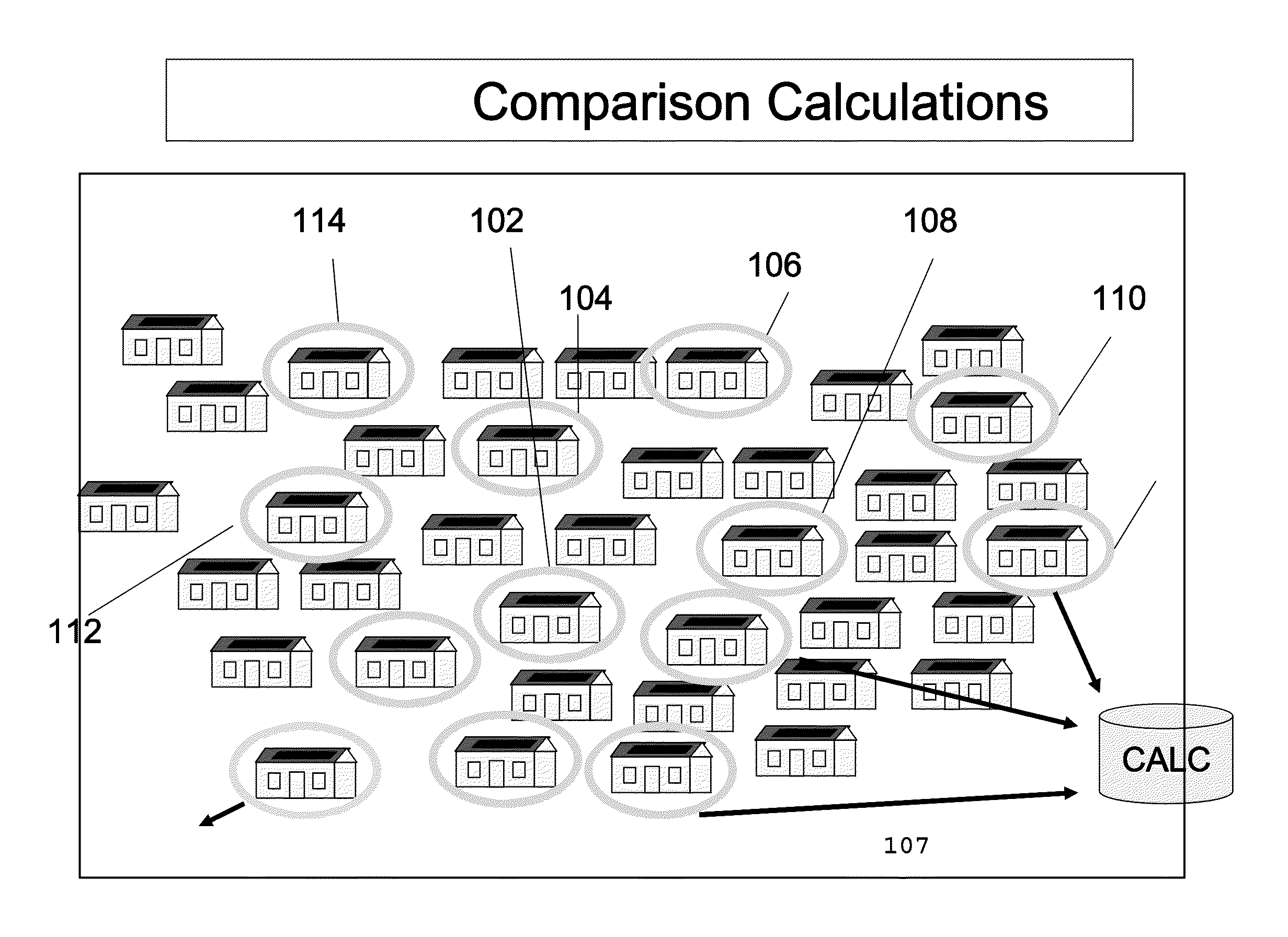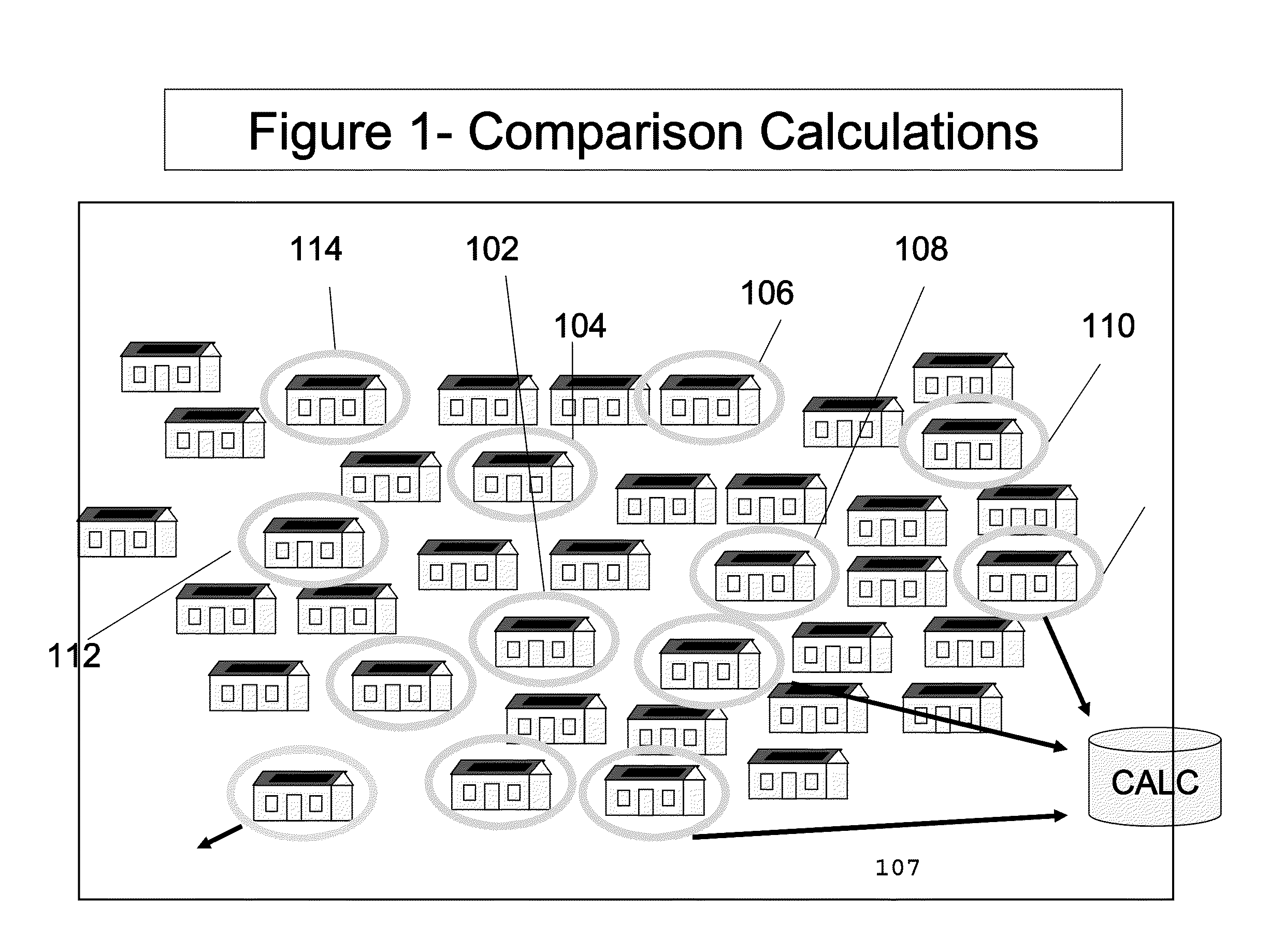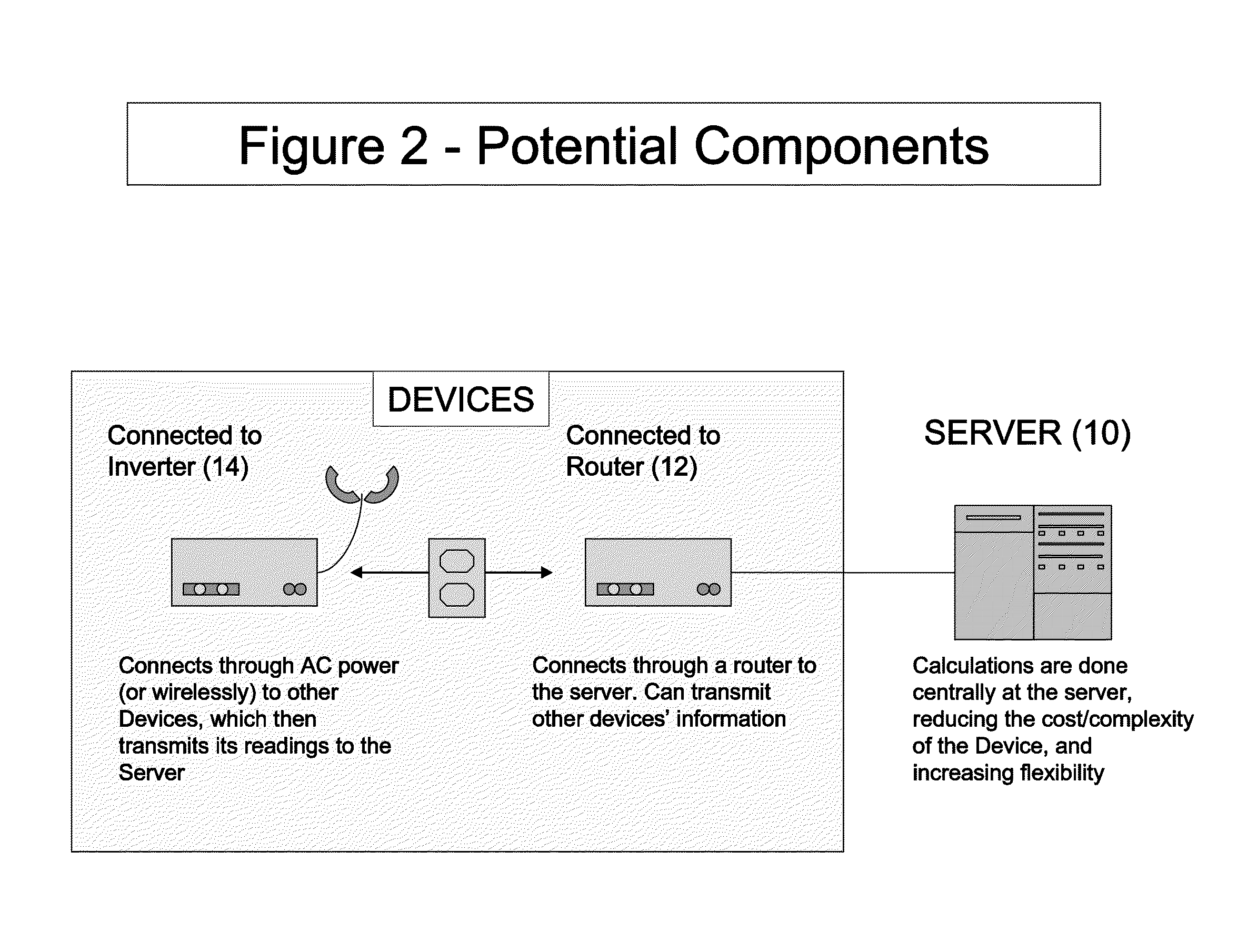Methods for orientation and tilt identification of photovoltaic systems and solar irradiance sensors
a technology of photovoltaic systems and solar irradiance sensors, applied in solar heat simulation/prediction, pv power plants, lighting and heating apparatus, etc., can solve the problems of inability to efficiently monitor and analyze a fleet, irradiance sensors are user inputs, and subject to human error
- Summary
- Abstract
- Description
- Claims
- Application Information
AI Technical Summary
Benefits of technology
Problems solved by technology
Method used
Image
Examples
Embodiment Construction
[0024]The following detailed description is of the best currently contemplated modes of carrying out the invention. The description is not to be taken in a limiting sense, but is made merely for the purpose of illustrating the general principles of the invention, since the scope of the invention is best defined by the appended claims.
[0025]FIGS. 1-5 provide examples of a monitored renewable energy system (more specifically a photovoltaic array solar panel also referred to herein as a solar photovoltaic system or solar powered system) from which information may be obtained. According to the example shown, there is a server 10 and at least one monitored renewable energy system (e.g. 102, 104, 106, 108, 110, 112) which is provided to a user or consumer. There may be at least one data server (10), at least one generation monitoring device (16) in communication with the monitored renewable energy system (at premise monitored renewable energy system (30)) and at least one communication no...
PUM
 Login to View More
Login to View More Abstract
Description
Claims
Application Information
 Login to View More
Login to View More - R&D
- Intellectual Property
- Life Sciences
- Materials
- Tech Scout
- Unparalleled Data Quality
- Higher Quality Content
- 60% Fewer Hallucinations
Browse by: Latest US Patents, China's latest patents, Technical Efficacy Thesaurus, Application Domain, Technology Topic, Popular Technical Reports.
© 2025 PatSnap. All rights reserved.Legal|Privacy policy|Modern Slavery Act Transparency Statement|Sitemap|About US| Contact US: help@patsnap.com



